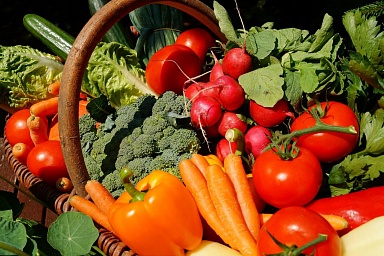The Ministry of Agriculture of the Chelyabinsk Region discussed the possibility of avoiding import dependence in the production of vegetable seeds through the development of regional industrial seed production.
A representative of the South Ural breeding and seed-growing company Heterosis Selection spoke about his potential in this area. The enterprise can provide its seeds to vegetable farms for reproduction in industrial volumes.
In the Chelyabinsk region, as well as throughout Russia, since the 1990s, a situation has gradually developed when vegetable growing enterprises mainly used imported vegetable seeds – cabbage, carrots, and beets. Therefore, the issue of import substitution has ripened in the industry. At the same time, as experts note, in a related industry – potato growing – a good base has been developed for the production of our own seed potatoes. Agricultural enterprises “Krasnoarmeiskoye”, LLC “Agroresurs”, South Ural Research Institute of Horticulture and Potato Growing are successfully working in this direction.
In vegetable growing, farms are needed that will specialize in the propagation of domestic varieties of vegetable crops. The question is interesting in that there are companies in the region engaged in selection work in this direction – NGO “Gardens of Russia” (Krasnoarmeysky district) and LLC “Heterosis Selection” (Miass). Both companies are focused on amateur gardening, but today Heterosis Selection has reserves to provide seeds for industrial cultivation and propagation.
Sergey Sirota, deputy director of the company, told about the activities of Heterosis Breeding to the heads of vegetable farms who could start seed-growing vegetables. The enterprise was created on the basis of the Miass-Sortsemoshch farm, which had been operating in Miass since 1935. Two decades ago, the goal was to revive domestic breeding and seed production, to develop improved and productive varieties of the main types of vegetables: beets, carrots, cabbage, cucumbers, tomatoes and others. And they succeeded: Miass breeders have created more than 370 varieties of vegetable and melon crops, of which 204 varieties have already been added to the state register. Sergey Sirota presented varieties and hybrids of carrots and beets bred by the company’s scientists, which, according to their commercial characteristics, can also be used in industrial production: carrots “Red Star”, “Sankina Love”, beets “Black Magic”, “Mother Matrena”, “Ural Refined “.
“There are a lot of reserves in seed production,” he said. – In the conditions of the Urals and Siberia, you can get good results in seed production. Our varietal qualities are high.”
This year, the seeds of “Heterosis Selection” will be sown on experimental plots at the “Akbashevsky State Farm” in the Argayashsky district. In the summer, it is planned to hold a regional Vegetable Field Day here. Managers of vegetable growing enterprises will be able to assess the crops and the possibilities of growing vegetables from the “Heterosis Selection” in their fields.
Anna Gubina, head of the crop production department of the Ministry of Agriculture of the region, spoke about state support for farms that decide to engage in seed production.
“It is important that enterprises become interested in this topic and start growing seeds this year. Argayashsky, Sosnovsky districts are a very good area for seed production of vegetable crops. State support can be provided under the capex program – for the construction of breeding and seed centers, under the program of concessional lending for the purchase of equipment. Subsidies may be given for the development and propagation of varieties as part of R&D. Since irrigation increases the volume and quality of vegetable crops, the state compensates 50% of the costs for the creation of reclamation systems. In addition, the production of vegetables this year is one of our priority areas, so subsidies for growing vegetables and potatoes have been increased,” Anna Gubina said.
As the chief agronomist of the regional Association of enterprises for growing vegetables and potatoes, Lidia Smirnova, said, earlier the potato and vegetable growing of the region was fully provided with local seeds. The revival of regional seed production is a long-term task, but already this year there may appear farms in the region that will be engaged in seed crops of vegetable crops.
- Latest
- Trending































